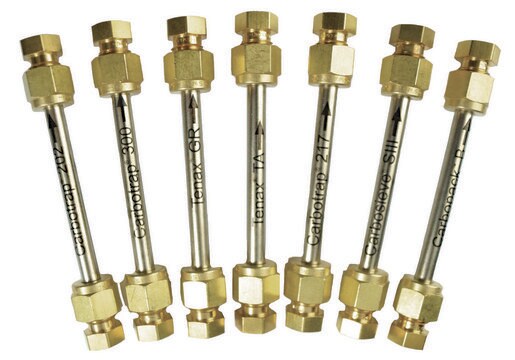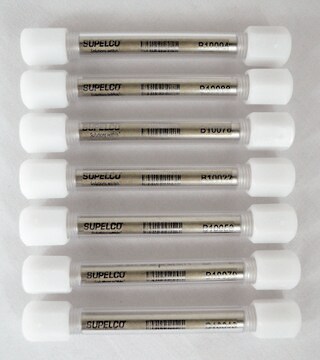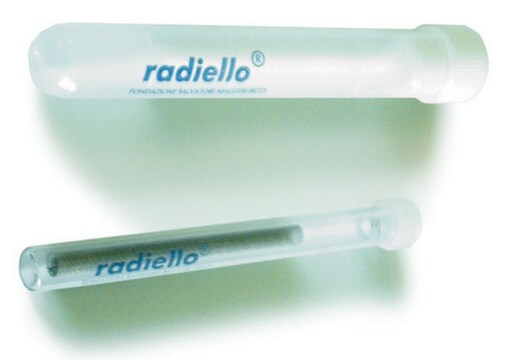Kluczowe dokumenty
29744-U
Carbotrap® 217 Thermal Desorption Tube
stainless steel, O.D. x L 1/4 in. × 3 1/2 in., preconditioned, pkg of 10 ea
Synonim(y):
Carbotrap® 217
About This Item
Polecane produkty
Nazwa produktu
Carbotrap® 217, O.D. × L 1/4 in. × 3 1/2 in., stainless steel TD tube, Sealed with Brass Endcaps, preconditioned, pkg of 10 ea
Materiały
stainless steel TD tube
Poziom jakości
agency
EPA TO-14 (Air Toxics)
EPA TO-17
linia produktu
Carbotrap®
Właściwości
preconditioned
opakowanie
pkg of 10 ea
charakterystyka ekologicznej alternatywy
Waste Prevention
Safer Solvents and Auxiliaries
Learn more about the Principles of Green Chemistry.
sustainability
Greener Alternative Product
metody
active air sampling: suitable
śr. zewn. × dł.
1/4 in. × 3 1/2 in.
Matryca
Carbotrap® 217 (Packed with Carbotrap B and Carboxen-1000)
Carbotrap® carbon molecular sieve (CMS)
Carboxen® 1000 carbon molecular sieve
Zastosowanie
air monitoring
environmental
industrial hygiene
kompatybilność
for use with PerkinElmer, Markes, DANI, OI Analytical, and Shimadzu Instruments
kategoria ekologicznej alternatywy
Szukasz podobnych produktów? Odwiedź Przewodnik dotyczący porównywania produktów
Opis ogólny
Informacje prawne
Nie możesz znaleźć właściwego produktu?
Wypróbuj nasz Narzędzie selektora produktów.
Kod klasy składowania
11 - Combustible Solids
Klasa zagrożenia wodnego (WGK)
nwg
Temperatura zapłonu (°F)
Not applicable
Temperatura zapłonu (°C)
Not applicable
Wybierz jedną z najnowszych wersji:
Certyfikaty analizy (CoA)
Przepraszamy, ale COA dla tego produktu nie jest aktualnie dostępny online.
Proszę o kontakt, jeśli potrzebna jest pomoc Obsługa Klienta
Masz już ten produkt?
Dokumenty związane z niedawno zakupionymi produktami zostały zamieszczone w Bibliotece dokumentów.
Nasz zespół naukowców ma doświadczenie we wszystkich obszarach badań, w tym w naukach przyrodniczych, materiałoznawstwie, syntezie chemicznej, chromatografii, analityce i wielu innych dziedzinach.
Skontaktuj się z zespołem ds. pomocy technicznej






